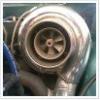What Dies In Gtrs?
Announcements
-
Similar Content
-
Latest Posts
-
You are selling this? I have never bought something from marketplace...i dont know if i trust that enough. And the price is little bit "too" good...
-
By Watermouse · Posted
https://www.facebook.com/share/19kSVAc4tc/?mibextid=wwXIfr -
It would be well worth deciding where you want to go and what you care about. Reliability of everything in a 34 drops MASSIVELY above the 300kw mark. Keeping everything going great at beyond that value will cost ten times the $. Clutches become shit, gearboxes (and engines/bottom ends) become consumable, traction becomes crap. The good news is looking legalish/actually being legal is slighly under the 300kw mark. I would make the assumption you want to ditch the stock plenum too and want to go a front facing unit of some description due to the cross flow. Do the bends on a return flow hurt? Not really. A couple of bends do make a difference but not nearly as much in a forced induction situation. Add 1psi of boost to overcome it. Nobody has ever gone and done a track session monitoring IAT then done a different session on a different intercooler and monitored IAT to see the difference here. All of the benefits here are likely in the "My engine is a forged consumable that I drive once a year because it needs a rebuild every year which takes 9 months of the year to complete" territory. It would be well worth deciding where you want to go and what you care about with this car.
-
By "reverse flow", do you mean "return flow"? Being the IC having a return pipe back behind the bumper reo, or similar? If so... I am currently making ~250 rwkW on a Neo at ~17-18 psi. With a return flow. There's nothing to indicate that it is costing me a lot of power at this level, and I would be surprised if I could not push it harder. True, I have not measured pressure drop across it or IAT changes, but the car does not seem upset about it in any way. I won't be bothering to look into it unless it starts giving trouble or doesn't respond to boost increases when I next put it on the dyno. FWIW, it was tuned with the boost controller off, so achieving ~15-16 psi on the wastegate spring alone, and it is noticeably quicker with the boost controller on and yielding a couple of extra pounds. Hence why I think it is doing OK. So, no, I would not arbitrarily say that return flows are restrictive. Yes, they are certainly restrictive if you're aiming for higher power levels. But I also think that the happy place for a street car is <300 rwkW anyway, so I'm not going to be aiming for power levels that would require me to change the inlet pipework. My car looks very stock, even though everything is different. The turbo and inlet pipes all look stock and run in the stock locations, The airbox looks stock (apart from the inlet being opened up). The turbo looks stock, because it's in the stock location, is the stock housings and can't really be seen anyway. It makes enough power to be good to drive, but won't raise eyebrows if I ever f**k up enough for the cops to lift the bonnet.
-
By BuiltNotBought · Posted
There is a guy who said he can weld me piping without having to cut chassis, maybe I do that ? Or do I just go reverse flow but isn’t reverse flow very limited once again?
-








Recommended Posts
Create an account or sign in to comment
You need to be a member in order to leave a comment
Create an account
Sign up for a new account in our community. It's easy!
Register a new accountSign in
Already have an account? Sign in here.
Sign In Now